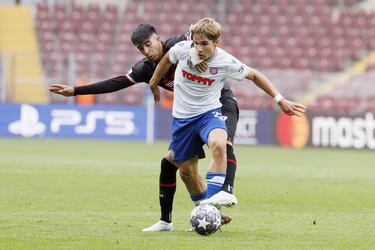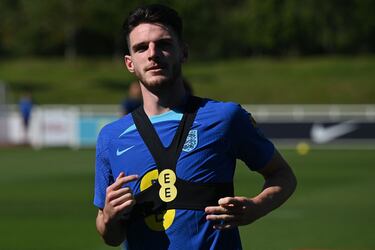Beyond professional soccer: preparing young players for the future after being released
For SIGA Integrity week, former Guernsey National Team manager Kevin Graham discusses what’s next for young soccer players after leaving professional clubs.


This article was written for SIGA Sport Integrity week by former Guernsey National Team Manager and CD Rincon (Málaga, Spain) coach Kevin Graham.
Becoming a player at a professional soccer club was once every young kid’s dream.
Soccer’s role in modern society may have changed - the sport has a great deal more competition these days when competing for the hearts and minds of young athletes - but it remains the dream for so many. With over 10,000 young players registered in the academies of English professional soccer clubs, and thousands more at partner clubs, development groups or satellite training centres, the sport still manages to attract the lion’s share of England’s young sporting talent.

A tiny percentage of academy soccer players become professionals
That also means that every year thousands of children and young players suffer the disappointment of being released.
Words like rejected, forgotten and discarded are often used to describe the process, reflecting the harsh reality of a sport and an industry where competition for places is as tough as, if not tougher than, any industry out there. Of those entering academies, less than 0.5% will ever make a living from the sport. Furthermore, the reality is much worse. Of those that do actually make a living from soccer at one stage, most will not get beyond their second contract and will need to enter the traditional workplace by the age of 23 - something most are underprepared for and underqualified to do. According to FIFPRO, over 72% of professional soccer players have no academic or vocational qualifications post high school.
England introduces League Football Education programme
In England, the EFL introduced the League Football Education programme in 2004 to ensure young players completed their scholarship with post-16 academic qualifications and experience of life skills and personal development programmes designed to prepare them for life after soccer.

Education programmes in soccer receive mixed reviews. Having worked with scholars at four professional clubs prior to 2004, I would question whether real learning and development occurs in an academic programme that, at least back then, seemed like a box ticking exercise rather than a commitment to the betterment of the young players.
That said, it’s encouraging to see how the EFL programme has evolved since then, with the addition of topics such as emotional wellbeing, discrimination, faith, finance, mental skills, sexual health and consent, social media, transferable skills, radicalisation, road safety and lifestyle education on key subjects such as gaming, gambling, alcohol and drugs.
How are released players helped by professional clubs?
Furthermore, some clubs have even created partnerships with local businesses for placements and training programmes on more practical career paths such as joinery and electrical engineering - a reflection of the broad range of interests represented in a typical academy intake.
Looking beyond players’ time within these programmes, whilst some might still criticise clubs for releasing players with little more than a handshake, the majority of the English academy system is now committed to supporting players with pathways post release, both into careers of their choice including coaching and sports therapy, higher education both in the United Kingdom and beyond with US College partnerships particularly keen to provide young players with their next opportunity, as well as exit trials and introductions to lower level and semi professional soccer clubs.

The soccer coaching revolution
Whilst more can certainly be done to support player welfare, I would also argue the experiences and influences young players receive in professional academies may provide a superior level of pastoral care and support than they may experience outside the game. With so many coaches and support staff now developing a much deeper understanding of child psychology, learning styles and emotional intelligence, the game now employs academy staff significantly more capable of supporting young people on their journey in both life and soccer than many experience in years gone by.
Developing young soccer players and preparing young people for life should not be two mutually exclusive processes - the soccer industry still has work to do on that front but there are encouraging signs.
SIGA Sport Integrity Week
On Wednesday 6 September, AS USA hosted a session of SIGA’s Sport Integrity Week, the the global thought-leadership event held from 2 to 9 September 2023, which aims to to unite the global sporting industry, share best practice and find solutions to current and future challenges to enhance sports’ governance, protect sport’s integrity and ensure sport’s long-term, sustainable development.
What makes a good owner? Principles for corporate governance in professional soccer
Fair opportunity in sports for all athletes
Sports gambling and soccer culture
Related stories

The importance of integrity for GRID

Golf not out-of-bounds for visually-impaired players
Her game too - a manifesto for change for women’s soccer
Can blind people play golf? A visually-impaired golfer explains the impact of the sport on his life